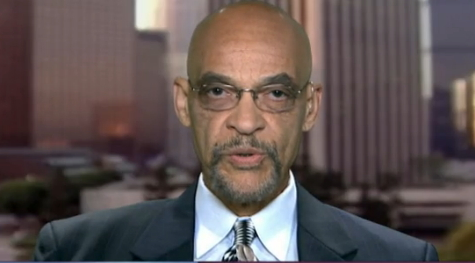Earl Ofari Hutchinson
Polls have consistently showed that an overwhelming majority of whites oppose reparations for blacks for slavery and the near century of Jim Crow racial suffering afterward. The same polls show that a majority of blacks back reparations. Oppose or support it, the fierce debate over reparations keeps cropping up, with now some Top democratic presidential contenders paying some lip service to it. The question is why this issue simply won’t go away? Here are ten reasons why.
- The U.S. government, not long dead Southern planters, bear the blame for slavery. It encoded it in the Constitution in article one. This designated a black slave as three-fifths of a person for tax and political representation purposes. It protected and nourished it in article four by mandating that all escaped slaves found anywhere in the nation be returned to their masters. In the Dred Scott decision in 1857, the U.S. Supreme Court reaffirmed that slaves remained slaves no matter where they were taken in the United States.
- Major institutions profited from slavery. Banks, shipping companies, and investment houses made enormous profits from financing slave purchases, investments in Southern land and products, and the transport, and sale of slaves. Insurance companies made big profits from insuring slaves as property.
- Slavery ended in 1865 but the legacy of slavery still remains. Countless reports and studies have found that blacks are still the major economic and social victims of racial discrimination. They are far more likely to live in underserved segregated neighborhoods, be refused business and housing loans, be denied promotions in corporations and attend cash starved, failing public schools than whites.
- There’s a direct cost for slavery’s legacy. Former Federal Reserve Board Chairman Andrew Brimmer estimated that discrimination cost blacks $10 billion yearly through the black-white wage gap, denial of capital access, inadequate public services, and reduced social security and other government benefits. This has been called the “black tax.”
- The U.S. government has shelled out billions since the 1960s to pay for resettlement, job training, education, and health programs for refugees fleeing Communist repression. There was no national outcry when the U.S. government made special indemnity payments, provided land and social service benefits to Japanese-Americans interned during World War II, Native-Americans for the theft of lands and mineral rights, and Philippine veterans who fought with the American army during World War II.
Politicians and most of the public enthusiastically backed these payments as the morally and legally right thing to do.
- The reparations issue will not fuel more hatred of blacks. Most Americans admit that slavery was a morally monstrous system that wreaked severe pain and suffering on America. Many major city councils have in the past passed resolutions supporting a federal commission to study reparations. It almost certainly will be a platform debate issue within the Democratic National Committee before the 2020 presidential convention.
- No legislation has been proposed that mandates taxpayers pay billions to blacks. A bill by former Michigan Democrat John Conyers languished in Congress for two decades. It established a commission to study the effects of slavery. The estimated cost was less than $10 million. Texas Democratic Representative Sheila Jackson Lee says she’ll reintroduce the bill.
- There is a precedent for paying blacks for past legal and moral wrongs. In 1997 Clinton apologized and the U.S. government paid $10 million to the black survivors and family members victimized by the syphilis experiment conducted in the 1930’s by the U.S. Public Health Service. In 1994, the Florida legislature agreed to make payments to the survivors and relatives of those who lost their lives and property when a white mob destroyed the all-black town of Rosewood in 1923. The carnage was tacitly condoned by public officials and law enforcement officers. The Oklahoma state legislature is currently considering reparations payments to the survivors and their descendants of the destruction of black neighborhoods in Tulsa by white mobs in 1921.
- Mega-rich blacks such as Oprah Winfrey would not receive a penny in reparations. Any tax money to redress black suffering should go into a fund to bolster funding for AIDS/HIV education and prevention, underfinanced inner-city public schools, to expand job skills and training, drug and alcohol counseling and rehabilitation, computer access and literacy training programs, and to improve public services for the estimated one in four blacks still trapped in poverty.
- In the early days of his White House tenure, former President Obama was frosty toward reparations. In the waning days of his tenure he had second thoughts. He now said that society had a “moral obligation” to close the racial gap and that there should be a massive investment in programs to do just that. He didn’t exactly call it reparations. But he came close.
It was a gingerly and polite way of putting it. But Obama did recognize that America owed a debt to black America for past and present sins. It still does. That’s why the pesky issue of reparations won’t go away.
Earl Ofari Hutchinson is an author and political analyst. He is the author of the new eBook, The Second Death of Michael Jackson (Middle Passage Press)https://www.amazon.com/dp/B07PK8Q7TM
He is a weekly co-host of the Al Sharpton Show on Radio One. He is the host of the weekly Hutchinson Report on KPFK 90.7 FM Los Angeles and the Pacifica Network.


How do you solve a problem like Trump’s economy? How do you offer African-Americans “salvation” from record employment? Ah! I got it! Reparations! Anything to buy votes and keep ’em on the Democrat plantation. Any surprise the topic is hot THIS year? It’s called D-E-S-P-E-R-A-T-I-O-N. Also, pandering and soulless, cynical demagoguery. Not to mention raw lust for power at any price.